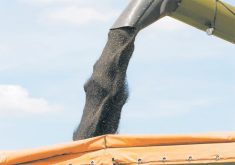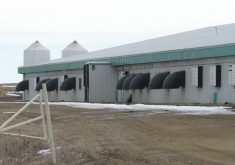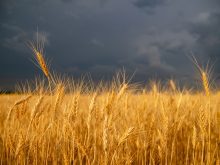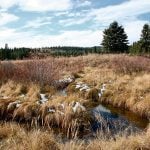Bill problems; Wild boars; Funding farm; Obama worry; More on toilets; Ice age; Treating symptoms
Bill problems
I would like to express my anger and distress over the Alberta Association of MDs and Counties’ decision to endorse the proposed Land Assembly Project Areas Act, known as Bill 19 (WP, April 2.)
It is clear to me that anyone who takes a serious read of this bill will see just how poorly it is written and how it undermines some very basic protections and gives sweeping power to the provincial cabinet in Alberta.
Read Also
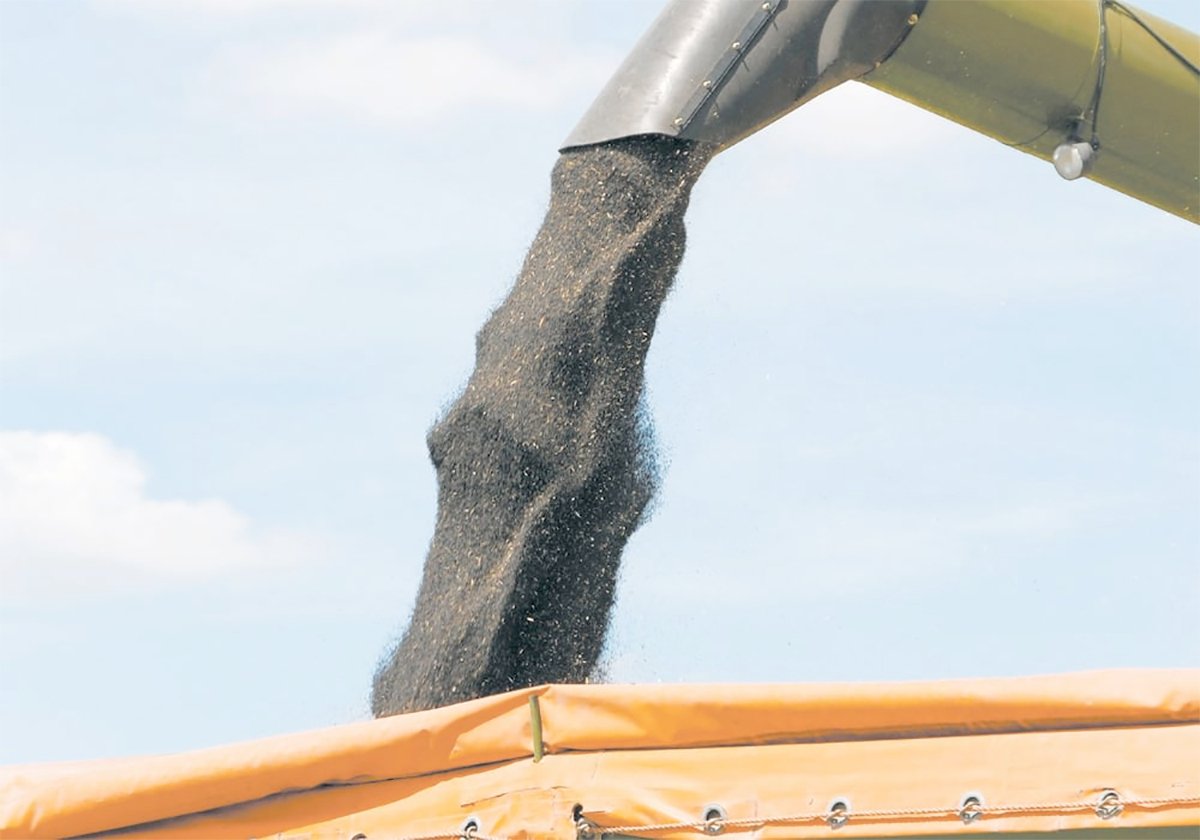
Determining tariff compensation will be difficult but necessary
Prime minister Mark Carney says his government will support canola farmers, yet estimating the loss and paying compensation in an equitable fashion will be no easy task, but it can be done.
Bill 19 is not only bad legislation, it is entirely unnecessary and infrastructure minister (Jack) Hayden and the rural MLAs have done a poor job in justifying its introduction or reason d’être.
Bill 19 proponents maintain that it is necessary for the acquisition of land for major infrastructure projects, but that ability already exists under the Government Organization Act with the authorization of Restricted Development Areas, which is what has been used before for pipelines, transmissions lines and canals. …
(It is clear) that there will be no public process and reasonable notice to landowners is unspecified. Also, in Section 3(1) of bill 19, Control and Restrictions, the bill rules “notwithstanding any other Act or regulation.”
What of the Water Act? What about the Environmental Assessment Act?
One of the worst provisions of Bill 19 is in the enforcement section. If this bill passes, the minister can submit an enforcement order as if it were a judgment of the Court of Queen’s Bench. The courts are extremely jealous of their power and are not likely to view this subversion of the judicial process with any enthusiasm. …
One of the most grievous problems in this bill is the lack of reasonable notice and the lack of the right to a hearing for affected landowners. …
Bill 19 gives huge discretion to cabinet, threatens some of the basic tenets of natural law and is poorly written and badly considered. Bill 19 needs to be scrapped.
Wake up, Premier Stelmach, wake up Mr. Hayden, wake up Alberta.
– Tim Belec,
Westerose, Alta.
Wild boars
The recent debate on the problem of feral wild boars has been based largely on misinformation and speculation. Perhaps the following facts will help clarify the situation.
Wild boars were native to most of Europe and Russia but their range has since shrunk and become more localized. They live in stable environments with other native and domestic animals as well as humans.
In North America they are subject to similar population control measures as in Europe. Locally, adult boars are prey to wolves and cougars while young are subject to predation by coyotes, hawks, owls, and eagles. These factors maintain population increases much below maximum rates as occurs with all wild species.
Wild boar are omnivores but eat meat only to the extent of what they find while foraging and digging. Since they are not high end carnivores, they coexist peacefully with most animals.
Animals base their response to situations by the potential threat to themselves and wild boars present very little threat to most animals. I have seen wild boars in the presence of deer, elk, sheep and horses with no sign of conflict. I have also seen them bedded down with cows, bulls and calves. The bulls and calves had no prior exposure to farmed wild boar.
Wild boars can be aggressive, especially during breeding, farrowing and if they feel threatened. They can also be very determined to go in the direction they choose, which may be misinterpreted as aggression.
But they are wild animals, and as such will avoid human contact if possible.
Eradication of feral wild boar is virtually impossible and expensive. I think it would be more efficient to turn the situation into a positive and promote hunting of them year round.
This would add to the rural economy and would be quite efficient as long as landowners would allow hunters on their land. This hunting could be promoted by the province, and they could use the Big Game Hunting Guide, which hunters receive when buying licences, as one means of doing this.
I agree feral wild boar populations need control, but it should be based on sound, logical reasoning and not on sensationalism.
– Jamie Dick,
Ridgedale, Sask.
Funding farm
A lot of us lately have been preoccupied with the news of Bruce Power proposing a nuclear plant somewhere along the North Saskatchewan River.
What many of us missed was a recent news release (March 26) of three Bay Street investors and a group of chiefs from First Nations in Saskatchewan and Alberta, signing a deal. We could eventually see 400,000 hectares (988,000 acres) of reserve farmland leased by One Earth Corp., which will manage the project for Toronto-based Sprott Resources Corp.
What concerns me is the source of funding and the motives behind it. In these hard economic times, this appears to be a fantastic deal for the First Nations people. …
One Earth Farms kind of makes you think it’s an earth friendly corporation, but not once in the news release was organic mentioned.
The corporation’s link to Viterra leads me to think that the proposed million-acre farm is going to require mega applications of chemicals, be it fertilizers, herbicides or pesticides. Years of studies are required before a nuclear plant will transform into reality, yet this mega farm project can expose us to toxic chemicals that will seep into our environment, livestock feed and the human food chain.
Why would a multimillion-dollar investor want to invest in western Canada reserve land?
1. We still have some of the most viable soil in the world.
2. Plenty of fresh water. Many of the leased lands are located around or close to many of our rivers and lakes.
3. The worldwide credit crisis is impacting finances available to many farmers, having a negative effect on crop production. Saskatchewan is still showing signs of economic growth, making this an opportune time for this venture.
4. By farming First Nations land, municipal taxes are avoided.
Yet these investors will be using all of our infrastructure to move their livestock, machinery and harvests, resting the overall cost on the Saskatchewan taxpayer….
Once this farm corporation acquires farmland, dictates crop production, raises the costs of mechanization and chemical input, the financial loss to our small farmers will be detrimental.
Like our hospitals, elevators and railroads, they too will disappear, leaving the taxpayer to support the multimillion-dollar investors.
Is this mega farm really going to better the lives of all First Nations people and increase the world food supply, or just increase the bulge in the investors pockets?
At the end of the day with our environment and waterways polluted, will a nuclear reactor really be so bad?
-Joanne Bielecki,
Paradise Hill, Sask.
Obama worry
I am wondering about this man, president of the United States, Barack Obama.
When he was running in the election, he said (he was) going to bring the troops home. Now he says he is going to step up the war with thousands of troops also at the border of Iran and Pakistan.
He may start a world war. He is doing opposite of what he said.
If you think president (George W.) Bush was bad, wait until Obama gets going.
He is forgetting his election promise and other promises. This man Obama, the most powerful man in the world, now could get us into a lot of trouble.
– Jack Pawich,
Cartwright, Man.
More on toilets
Re: the toilet seat problem (WP, March 12 and previous editions).
A majority of the world’s population do not have a toilet seat to sit on, let alone put up and down.
Instead, they have an opening in the floor that one has to aim for and hopefully hit, all while the convenience is emanating a cloud of odour that would eat the nostrils out of a skunk.
While it certainly looks nice if the seat and lid are lowered, one should be grateful that the seat is raised when necessary so as to not get it soiled.
Better to have a clean seat to lower than one that was left down and rained on.
– Don Budesheim,
Grande Prairie, Alta.
Ice age
In the last six months, Western Canada has been exposed to some of the coldest seasonal temperatures on record.
At the time of writing, Environment Canada’s Regina weather station has recorded some of the lowest night time seasonal temperature in 125 years.
In spite of increasing evidence against global warming, leftists continue to perceive the burning of fossil fuels as its cause.
I have a theory. When I was in high school in the late 1960s, we had extremely cold winters. The trend continued into the late ’70s. At the time, many scientists were predicting another ice age.
The warming trend of the 1980s sent climatologists and researchers on another tangent. They suddenly changed their predictions to global warming.
What if the planet was indeed headed for another ice age? Can you imagine the disastrous effects when Canada, Russia and China could no longer grow cereal crops because of reduced summer temperatures?
Think carefully. What if the increased levels of carbon dioxide in the atmosphere have saved us from Armageddon by keeping temperatures up? Keep in mind that carbon dioxide levels are not only the result of human activity, but also naturally occurring, and that forest fires and volcanoes, along with plant and animal decay, all contribute to the CO2 factor.
So what happens if we reduce the levels of CO2 to a point where we set off a cooling trend? I don’t know about you people, however I don’t want to be burning grandma’s rocking chair to keep warm in July.
– John Hamon,
Gravelbourg, Sask.
Treating symptoms
In response to food irradiation (WP, Special Report, April 9): Irradiation, pasteurization, fluoridation and arguably vaccination are examples of society treating symptoms of a problem rather than correcting the problem itself.
Irradiation and pasteurization alter a food’s digestibility, which in turn affects nutritional value.
Fluoride interferes with iodine, and in turn thyroid function. Would vaccinations be necessary if the immune system were healthy?
Our diet is increasing in carbohydrates, proteins and fats/oils, but is decreasing in trace nutrients, enzymes and beneficial microbial life.
Continuation of feeding ourselves, our animals, plants and soils, without providing proper nutrition, is the reason we keep exploring ways to treat symptoms.
As the pharmaceutical industry knows, there is way more money to be made treating symptoms than curing the problem.
– Garrett Osborn,
Big Beaver, Sask.



